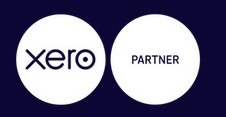Whilst many agency owners are attentive to invoicing, very few are unaware of what their actual revenue figure is as revenue recognition has not been adopted. Something I’ve often repeated in my career is “billing is not the same as revenue”, there is a huge distinction between the two. Invoicing a client is only a request for money based on an agreement for services that you may or may not have delivered. The revenue recognised in your profit and loss statement needs to reflect the value of services rendered to your clients rather than what’s been billed. Billing a client in advance doesn’t mean you’ve earned revenue yet and billing in arrears doesn’t mean that you haven’t already earned revenue.
Revenue recognition is a cornerstone of financial accuracy and I often find when I take on a new agency that the previous accountant has taken annual billings to be the revenue rather than making any enquiries with the client. This can lead to a material misstatement in the financial statements and the shareholders not truly knowing and understanding the financial performance. Taking the total value of invoices issued in a financial period can lead to wildly varying revenue whilst costs remain fairly consistent. Consequently, a significant number of agencies may inadvertently pay more corporation tax than necessary for the financial year or it could mean missed opportunities such as securing mortgages for their dream homes. In the longer term, this can be flagged in financial due diligence, causing unwanted implications for shareholders during the process of selling the agency to a third party.
Navigating Revenue Recognition: Approaches
The way revenue is recognised is based on the intricacies of the work and contractual arrangements. Let’s delve into some common scenarios:
Project-Based Work
Revenue earned is based on the contract value and the percentage of project completion. If the contract designates fees for specific milestones or stages, revenue earned aligns with the percentage of completion achieved for each of these stages. If there is a specific act that is much more significant than any other, no revenue can be recognised until that act is complete. An example is an events agency not recognising revenue until the event has taken place.
Retainer and Service Level Agreements
Revenue is recognised equally over the period of the contract when services are performed by an indeterminate number of acts. An agreement starting or ending part way through the accounting period is pro-rated. If a retainer or SLA is billed in advance then revenue for future accounting periods is deferred.
Billing by the Hour
Time-based billing might be better suited for small one-off projects. Revenue accrues based on recorded time and agreed-upon charge-out rates. Where there is a fee cap and time costs surpass the limit, revenue is capped at the predetermined maximum.
Contingent Income
Where any element of income relates to a measured outcome, revenue can only be recognised when the outcome is certain. Examples include having to achieve stated sales uplifts, impressions or click-through rates.
Recharging Third-Party Costs
It’s important that revenue recognised for third-party costs recharged to clients is matched against the cost incurred from the supplier in the same reporting period. Adjustments can be made through balance sheet entries to ensure income and expenditure align.
Conclusion
Revenue recognition is important for agency leaders to understand their financial performance and health. Using billings as the revenue figure will often lead to choppy revenue, profits and margins and the use of bad data to support decision-making. At Barnridge, we help agency owners understand their financial performance through accurate financial and management reporting, which includes recognising revenue correctly. Please get in touch if you’d like to learn more.


